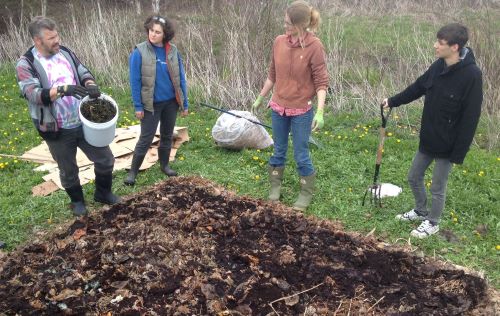Teaching

Research and teaching are central to the Acadia Farm's role as an educational garden. Students in many programs spend time working and learning at the Farm as part of their course work in a variety of disciplines such as Environmental & Sustainability Studies, Nutrition & Dietetics, Community Development and more.
The Farm is Acadia's living laboratory on campus for learning about the local food movement, food security, community food systems, sustainable agriculture, soil science, habitat management and biodiversity, pollinators plants and species and much more.
CODE 3603: Sustainable Food Systems and Community Development
A credit course on Sustainable Food Systems and Community Development is available to students who wish to pursue more in depth studies with a focus on experiential learning and hands-on activities. The course is taught by Acadia Faculty or local agriculture experts. Normally this course is offered through Open Acadia in the spring intersession, but is sometimes offered in the fall semester. It is cross listed in both Community Development and the School of Nutrition and Dietetics. Contact Open Acadia or the Department of Community Development for more information.
Course Description
Using an experiential approach, concepts, current issues and applications of sustainability, citizenship, sovereignty, security and policy in the context of food and food production systems will be explored in this course. Students will learn the foundations of growing food and be encouraged to broaden their capacity as gardeners and food citizens regardless of prior experience through hands-on gardening activities, critical discussions, and independent project work with community organizations involved in building sustainable food systems. For additional course details and to register visit Open Acadia.
